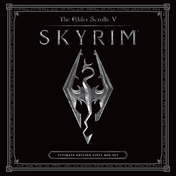Max de Wardener - Kolmar [CD]
Subscribe to our newsletter
Sign up for exclusive offers.
For innovative composer Max de Wardener, music is a kind of time travel, a means of exploring the antique and the arcane and repurposing them for a forward-facing now. Classically trained, de Wardener is nevertheless renowned for compositions that explore everything from church organs to self-built instruments, as well as electronics and more orthodox chamber configurations. On Kolmar, his debut album for Village Green, the composer teases pure, dream-like sine wave tones from recondite, early-to-mid 20th century instruments like the ondes martenot, the Cristal Baschet and the glass harmonica. De Wardener melds these seamlessly with heavily manipulated Buchla and Oberheim analogue synthesisers, grand pipe organs pitched down several octaves (or with all the stops pushed in so that the sound collapses) and miscellaneous exotic but precisely applied acoustic percussion, most of it courtesy of prodigious jazz drummer Moses Boyd. Yet for all its vintage kit, this is no techno-historical grab bag or sonic museum piece. Nor is it merely an exercise in arch retro-futurism. Kolmar, over two years in the making, is often ravishingly mellifluous and emotionally stirring, while simultaneously retaining the power to disorient provoking and unsettling the ear as readily as charming and seducing it. Kolmar was recorded at Tramways Studios in London, at synth specialists Simon Sound in Brighton and at the Alsace-Lorraine studio of rare instrument collector and sometime Radiohead and Tom Waits affiliate Thomas Bloch, whose painstaking glass instrument multi-tracking was crucial in realising what de Wardener had envisioned for these delicate devices (he is a craftsman of the monophonic, the composer submits). The album is in fact named after the small town in the Franco-German borderlands, Colmar, close to Blochs studio. Propelled and defined by such playful means of disrupting default creative gesture, Kolmar is the work of a musical adventurer eager to map terra incognita, albeit using some resonant contours of the past. Crucially, de Wardeners delight in pure tone and ingenuous joy in the sculptural possibility of sound are as palpable as they are persuasive. Time travel has rarely sounded so compelling.
1. Max de Wardener Amber 2. Max de Wardener Free Radicals 3. Max de Wardener Casino On The Dunes 4. Max de Wardener Wraith 5. Max de Wardener Two Chords 6. Max de Wardener Kolmar 7. Max de Wardener Prelude 8. Max de Wardener Vanitas 9. Max de Wardener Kolmar (Reprise) 10. Max de Wardener Merricat 11. Max de Wardener Palindrome 12. Max de Wardener Falter
- Format Detail: CD Digipak w/ free label compilation sampler
- Format: CD
- Genre: Dance & Electronic

![Max de Wardener - Kolmar [CD]](http://paladinvinyl.com/cdn/shop/files/max-de-wardener-kolmar_RKXMe.jpg?v=1716008516&width=640)
![Max de Wardener - Kolmar [CD]](http://paladinvinyl.com/cdn/shop/files/max-de-wardener-kolmar_RKXMe.jpg?v=1716008516&width=1400)

